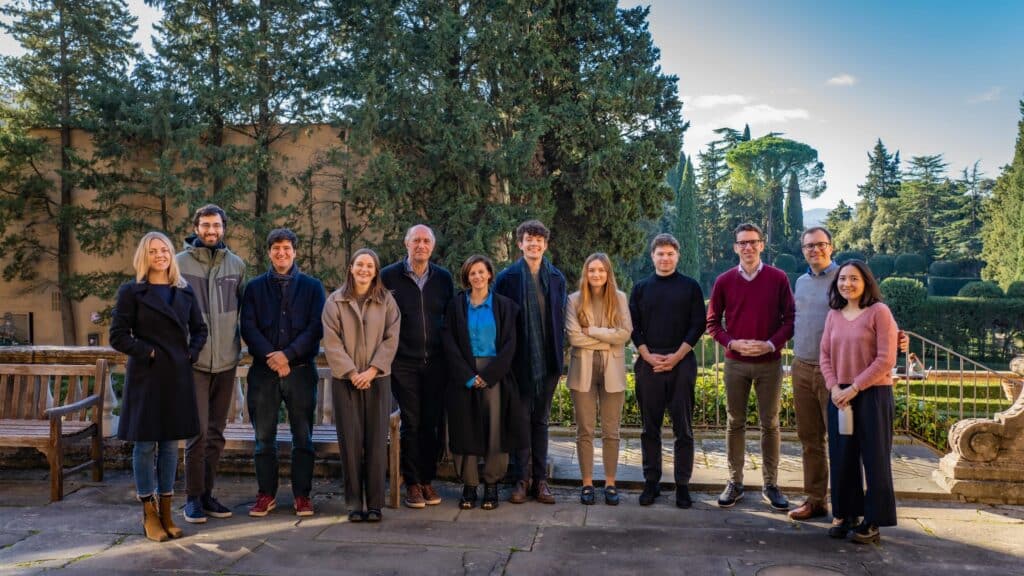The adoption of the EU methane strategy is just a beginning
Highlights from the event: Addressing methane emissions in the context of energy system integration
With the publication of the EU methane strategy “we’re sure that we’re doing the right thing” – said Stefano Grassi – head of the Cabinet of Commissioner Kadri Simson – at the opening of the joint Florence School of Regulation (FSR) – Environmental Defense Fund (EDF) webinar.
The one-and-a-half-hour webinar moderated by prof. Andris Piebalgs (FSR) took place last Friday (October 23), and these highlights will walk you through some of the key moments of the discussions.
Transparency
The EU Commission adopted the EU Strategy to reduce methane emissions on October 14, and sets the methane emissions measurement, reporting and verification as a priority area. To this objective, the EU Commission will support the initiatives aimed at the improvement of both the bottom-up and top-down measurements such as the OGMP 2.0 Reporting Framework and satellite observations through the already-established Copernicus Program.
Antoine Rostand (Kayrros) has demonstrated how helpful satellite observations are to spot large sources of methane emissions.
An international methane emissions observatory will aggregate the data coming from various data streams – an idea to create such an observatory is supported not only by the EU executive, but also UN Environment Program (UNEP), Climate and Clean Air Coalition (CCAC) and International Energy Agency (IEA). The data itself is not enough, as MEP Jutta Paulus noted the data gathered by the observatory should be embedded in day-to-day decision making. Therefore, Ms Paulus suggested more concrete steps on the certification [of fossil fuel supplies] with an exact deadline for the implementation of such a scheme.
Cross-sector approach
The Strategy sets a holistic framework to limit methane emissions from all key sources – agriculture, waste and energy, responsible for 53%, 26% and 19% of all the EU anthropogenic emissions, respectively. Such an approach is consistent with the energy sector integration framework, as rightly noted by Mark Radka (UNEP). It could contribute not only to the methane emissions reduction, but also increase in the supply of low-carbon and renewable gases, as well as local jobs creation.
Sustainable biogas from waste is a win-win and together with a change in the food habits could bring about substantial methane emissions reduction, as noted by MEP Nicolás González Casares. This view was not fully supported by MEP Jutta Paulus, who called for more decisive steps to limit industrial farming and improve the well-being of animals.
On energy-related emissions specifically, the Spanish Socialist emphasised the need for legislation to limit the problem of routine venting and flaring.
From voluntary initiatives to regulation
The EU energy companies could start with self-regulation, e.g. by joining the OGMP initiative voluntarily. The EU Commission is planning to table legislative proposals together with Impact Assessment in June 2021, according to the EU Commission 2021 Work Programme.
Several EU gas companies lead by GIE and Marcogaz have been working together for quite some time now to raise the awareness of the industry on the environmental effects of methane leaks, especially in the downstream sector.
The panellists agreed that the issue of methane emissions should be discussed within the broader framework of the decarbonisation of the gas system and the energy sector integration. Since the production of sustainable biogas could help to decarbonise the gas sector and reduce methane emissions from agriculture and waste.
On the energy-related emissions specifically, Stefano Grassi pointed out two other areas that need further work – Leak Detection and Repair (LDAR) programmes and the creation of right incentives for the suppliers to limit the methane intensity of natural gas and oil imports. The latter could be achieved through a gradation of measures, starting from more flexible to more constraining.
The FSR and EDF are organising another webinar devoted to the topic of methane emissions in late November. More information will follow.
Learn more on the topic
FSR statement on methane strategy
FSR Policy brief on satellites
US standards (NSPS) on methane emissions
Cover the basics
What are methane emissions and why do they matter?






